- Home
- Dustin Stevens
Liberation Day Page 2
Liberation Day Read online
Page 2
Stepping away from the guardhouse, O’Malley made a circular motion with his arm for the driver to roll down his window. The car pulled even with him as the glass slid down accordingly.
“Evening,” O’Malley said, his thick Irish accent the only sound on an otherwise deserted dock. He remained a few feet back from the car so he could stand erect and still see inside.
The driver wore a black fedora tilted to the side, his face hidden from view. He made no attempt to uncover his face or even glance in O’Malley’s direction.
“Evening.”
O’Malley noticed the hat and the black driving gloves, his nerves on edge. He also noticed the lilt of the voice, something far removed from what he usually encountered on the south end of Boston. “What brings you by tonight?”
“You do,” the driver replied, rotating his head and allowing O’Malley to look him full in the face. With his right hand he raised a Heckler & Koch P7, a noise suppressor screwed onto the end, elongating the barrel by several inches.
“What the hell?” O’Malley asked, raising his hands and taking a step backwards, his face twisted up in surprise.
He made it only three steps before the first round slammed into him, followed by another, and another. Together they formed a small triangle on his chest, the force of them driving him back into the guardhouse before his legs gave out, his body toppling to the ground.
The driver’s side window was already up, the sedan moving ahead, by the time O’Malley came to a stop face down on the pavement. It pulled ahead to a pair of large metal containers halfway down the dock and stopped long enough to allow five men to slide from the car.
Dressed in the same suit, gloves, and long jacket as the driver, they moved in complete silence as they removed the locks from the targeted containers and disappeared inside. Less than a minute later the sound of car ignitions could be heard rumbling from within, reverberating off the metal walls.
One by one a 1967 Ferrari, two Lamborghini Testarosas, and two classic Corvettes, all painted bright red, filed out, rolling past the sedan and disappearing into the night. When the last one was past the sedan shifted back into gear, moving slow as it passed the guardhouse and returned the way it had came.
Behind it O’Malley’s body remained face down on the pavement, nobody making any attempt to cover up what had just taken place.
Chapter Two
Washington, D.C.
“Thorn Byrd.”
Jeff Ingram didn’t float the name like a question, nor did he place it out there like a statement. Rather, he spat it at the room, daring someone to go against him.
Thorn Byrd was his pick, the prospect he’d followed for three and a half years in a way that bordered on stalking. He’d researched every aspect of his past, analyzed every detail of his upbringing, combed through every facet of his life with a meticulous tenacity that would make the most ardent research scientist proud.
Never before had Ingram gotten one past the board, but this was it. This kid was the one he was banking his career on.
He was zero for two already. This was his last shot.
Ingram stood in front of the room and waited for the challenge he knew was coming. It only took a moment for Rom Birkwood, the consummate prick in the room, to provide Ingram with what he was waiting for.
“Jesus, three years at the best college in the world and this is the best you can do?”
Ingram glared at Birkwood before scanning the men before him. In total six of them sat staring back, each in shirtsleeves and crisp ties with designer suit jackets draped across the back of their chairs. They had been sitting for over eleven hours, but each looked as composed as the minute they arrived.
Together they comprised the board, the men who decided which picks were chosen, and which went on to lead the lives they were going to anyway.
On the opposite end of the company hierarchy were people like Ingram, known simply as evaluators. They were hired in on five-year contracts and placed throughout the country in elite settings to scour for the best and brightest talent available. Three times in those five years they were allowed to present the board with someone they deemed worthy. If one of their choices survived the board, they were offered employment and the evaluator was promoted to handler.
If their picks were not selected, they went on with their life as if the last five years had never happened.
No line item on a resume. No future recommendation letters.
For the previous fifty-six months Ingram had lived in Cambridge, Massachusetts, scanning the hallowed ground of Harvard University. Twice before he’d brought squeaky clean kids with trust funds and impeccable credentials before the board and on both occasions had been submarined by Birkwood.
This time Ingram had something a little bit different on tap for them, something nobody would see coming.
There was no way in hell Birkwood was bringing him down again.
“I’m assuming that was rhetorical,” Ingram shot back, the remark raising a few eyebrows around the table.
“So that’s how it’s going to be?” Birkwood asked, fighting a losing battle to keep his voice level as blotches of red appeared on his cheeks.
“We’ve been down this path twice before, you and I,” Ingram countered, motioning between them with his thumb and forefinger. “You made the rules. I’ve just decided to play by them.”
Birkwood stared at Ingram for several long seconds before sliding his gaze down to the papers before him. “All right then, let’s start at the beginning.
“Hometown: Charleston, South Carolina. You are aware we need operatives that can assimilate and disappear at a moment’s notice, right?”
It was exactly where Ingram had anticipated the questioning would begin. “I am. He doesn’t have an accent.”
“None?” asked a man Ingram knew by name to be John Lewis, his voice entering from the opposite end of the table.
“Not anymore,” Ingram answered. “He had a light drawl when he arrived on campus but after a couple of professors insinuated it sounded less-than-intelligent, he learned to mask it.
“Now, the only people who know he has it are the ones he wants to know. Took me two years to hear a shred of it.”
The room accepted the response as Birkwood scanned for another pitfall.
“Activities: varsity football. How many brain cells does he even have left?”
Ingram lowered his head a moment, blowing a long breath out through his nose. He kept his pulse even, not wanting his face to shine red or for a sheen of sweat to coat his features as he counted to five before answering.
“Every single person that attends Harvard gets in because they’re exceptional at something. For some, that is physics. For others, it is football.”
He paused, again looking over the faces before him.
“And tomorrow morning he graduates in good standing with the rest of his class, despite giving fifty hours a week to football and many more to the Navy reserve. It is my understanding those are the type of skills this company is looking for.”
Ingram didn’t expect many of the men in the room to know football well enough to bother going in to the specifics of it or how it might translate to future employment. Everything he had to say was in the report if they wanted to pursue it, but for the time being he was content to go the route of brevity.
“That’s how you met this one, right? Through football?” Bryce Stepoli, the senior man in the room, asked. A thick swath of silver hair was combed straight back on his head and, when he spoke, the others around him paused and waited for a response.
“Yes,” Ingram replied, coupling it with a nod. “Part of my cover was serving as a graduate assistant on the football team. This one caught my eye the first day he was on campus. Got into a scrap with the team captain and gave him six stitches under the chin.”
A few heads lowered themselves as Ingram paused, scribbling notes in the packets strewn before them.
“Yeah, seems this kid fashions himself a b
it of a pugilist,” Birkwood said. “Two charges for assault. Again, we’re looking for invisibility here, not common street thugs.”
It was the second question Ingram had walked in expecting from Birkwood.
“Two things,” Ingram replied. “First, he was taught to fight in the Navy. Despite your insinuation, he doesn’t fashion himself anything.
“Second, if you’d read the attached information, you’d know that the charges were dropped right after being filed.”
“Doesn’t change the fact that the charges were brought.”
“Nor does the fact that they were brought because he beat the hell out of two men trying to mug an old woman.”
Ingram knew he was walking a tight line between confidence and insubordination, but he wasn’t about to back off. Twice before he’d come in kissing asses and both times he’d ended up bounced out on his.
A man with a shaved head and goatee seated three chairs down from Stepoli rifled through the file before pausing. “I notice his mother’s passed.”
“That’s right.”
“And that her date of death and his date of birth are the same.”
“That’s right,” Ingram repeated. “They were caught in a snowstorm when he was born and she had to have him in the car beside the road. There were complications and she died before reaching the hospital.”
The story was one he unearthed through no small amount of digging, the kind of thing he instantly wished he hadn’t found. He kept the thought off his face as he stood and waited, the inevitable follow up soon to come.
“Is that a problem?”
Ingram shook his head. “No, if anything, it strengthens our position. He has no other siblings and his father never remarried. It’s just the two of them.”
“Fewer connections, less back story to deal with,” Lewis said.
“Agreed,” acknowledged Ingram.
Stepoli leaned forward and rested his elbows on the table. The room grew silent around him as he closed the top of the file and pushed it away, lacing his fingers before him.
“We’ve been sitting here for eleven hours looking over folders of candidates from all the right families with all the right grades and test scores and extra-curricular activities. You’ve been here before, you know how it works.”
He paused for a moment, looking the length of the table. “Now, for some reason, this time you chose to bring us a southern football player with a straight B average from a one-parent home. Someone that put in his two years active duty with the Navy, then promptly walked away the minute it was up despite being requested to stay on.”
Again he paused, his face showing that he was being careful in choosing his words. “I’m wondering, why? What is it you see here that makes you willing to gamble your career on him? What makes you think this is what we’re looking for?”
Ingram paused and looked down at the polished black marble in front of him. He pretended to be contemplating the question, though he didn’t need to search for any answers. It was an inquiry that had been posed in each of his prior meetings and one he’d been praying would come again.
“You’re right,” Ingram said, raising his gaze, nodding slightly. “Thorn Byrd isn’t the same spit-shined, spoon-fed, son of fortunate that usually gets paraded through here.
“But let me ask you this, what normally happens to those kids? We pride ourselves on finding the best there is, yet, for some reason, we have a retention and survival rate of just over forty percent.
“Personally, I think it’s because we’re going after the wrong people. We target guys that look great on paper, but don’t know how to deal with adversity because they’ve never had to.”
He paused for a moment, making sure he still held the rapt attention of every man before him.
“So this time I took a different tact. I sat down and asked myself what kind of man I would want to work with if we did survive the vetting process and the answer was pretty plain to see.
“I’ll take a guy that’s hungry over a guy that’s gifted any time.” Raising his right hand, he pointed at the folders spread across the table. “And this kid has a hunger for life unlike anybody I’ve ever seen.”
Chapter Three
Havana, Cuba
The calendar demarcated it was only June, but already the air was stifling. Thick and stagnant, it attracted insects and odors, seeming to grip them both in an interminable holding pattern.
Nio Garcia swept his dark hair across his forehead and flung the residual sweat droplets to the ground with a flick of his hand. He wasn’t sure how long he had been seated on the floor of the cramped shipping container, even less certain how much longer he would have to be. Terrible fatigue had long since gripped him, the hours of sweating in the portable oven taking their toll on his body.
Most of the people bunched tight in the room with him were what the rest of the world would call refugees, fleeing their homeland for the promise of a better life. They had paid someone they didn’t know a great deal of money they didn’t have to take them someplace they’d never been.
To many of the fellow Cubans they were leaving behind, they were simply deemed lucky.
The path Garcia had taken in getting here was much different from most of the people around him, having never been a mistreated field worker or forced to spend years in the Cuban military. Despite being a pureblooded Cuban, four days prior was the first time he had ever set foot on the island.
Three years before Nio was born, his parents had managed to escape the island aboard a fishing trawler. Together they had taken nothing more than the clothes on their back and spent two days hidden beneath fifty pounds of mildewed fishing nets. When at last they emerged to feel the sun on their faces again they were standing on the beaches of Florida, indebted to the men that had brought them but having never felt freer in their lives.
It took two years of hard work in Miami to clear the debt of their passage and once it was gone, they pushed north up the coast to Fort Lauderdale.
It was there that Nio was born.
Nearly twenty-three years after arriving in America, word was received that Jorge’s father was in poor health and would not be long for the world. Despite the arguments of his family, Jorge insisted on seeing his father before he passed.
With improved border security and tighter Coast Guard precautions, the days of using old fishing charters for getting on and off the island were a thing of the past. Jorge contacted several noted Cubans in the area and found that the most trusted way in and out of the country was through an operation in Boston, Massachusetts.
Without question, he took the next flight north.
Five days after his departure a blank post card arrived postmarked from Havana letting his family know that he was safe.
It was the last word anybody had heard from him in over three weeks.
Nio waited in hope that his father would return, but with each passing day his anxieties grew. After a week he approached his mother about going in search of him, but she balked at the idea, warning him against doing anything rash. At the end of the second week, he had approached her with the same request.
She wrote him a check for the plane ticket without asking a single question.
The next morning, Nio contacted the University of Miami to let them know he was taking a leave of absence before reaching out to the same outfit in Boston and making arrangements.
The trip south had been a damp and sweaty two days, most of it spent in complete darkness, listening to the metal of the old boat groan with each wave it crested. The ride was made in near solitude, a product of very few people ever wanting back on the island once they were off.
Now just days later, Nio found himself wishing he had that kind of space again.
Forty-eight hours had been the sum total of his time in Havana, every last one of them spent searching for his father. In the course of those two days he was able to track down his grandmother, two aunts, an uncle, enduring their tears as they extolled their joy at me
eting him for the first time. To the person, every last one of them told of how great it had been to see his father.
In equal measure, they also informed him that not one of them had heard from him since his departure weeks before.
Tucked into the corner of the container Nio sat with his chin on his knees, sweaty flesh pressed in on him from every direction as the doors burst open. A flood of bright lights punctuated the darkness, causing many to wince, some murmuring with hope that an end to their perpetual holding period was finally at hand.
To their chagrin, it was nothing more than the arrival of more passengers, extra bodies to be wedged into the darkness, more humanity to smash into a space that could ill afford it.
After almost two days seated in the container, the scene didn’t even register with Nio. He had seen it play out a dozen times before, felt reasonably certain it would again before the return leg of his journey was finally under way.
Chapter Four
The vice president of Harvard University walked to the microphone with a smile stretched across her face. With a nod to the dramatic, she paused in front of the microphone and surveyed the crowd one last time. Over 5,000 students filled the vast majority of the Yard in matching red and black robes, offset by twice that many proud friends and family members pressed in behind them.
“Mr. Sheriff, please give us closure!” she trumpeted into the microphone, the crowd before her breaking into enthusiastic applause as the Sheriff of Middlesex County rose from his seat and walked stiff-legged across the stage to join her. Dressed in an old-time tuxedo and top hot, thick streaks of sweat lined his face as he leaned on his long, black cane, a golden orb gleaming from the top of it.
Stopping just in front of her, the sheriff dutifully lifted and struck down the cane three times. The base of it made a clacking sound against the stage, echoing out through the microphone and across the grounds. Drawing his breath in and dropping his voice several octaves, he leaned forward and called out, “I hereby bring these proceedings to a close!”

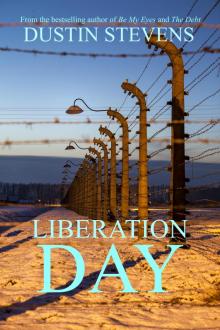 Liberation Day - A Thorn Byrd Novel
Liberation Day - A Thorn Byrd Novel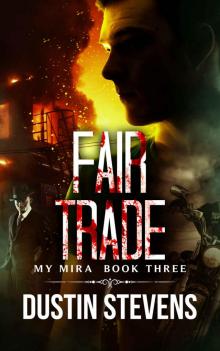 Fair Trade
Fair Trade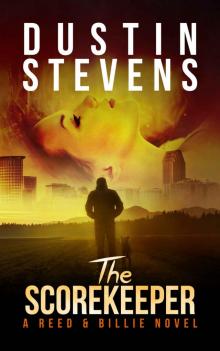 The Scorekeeper
The Scorekeeper Wild Fire: A Suspense Thriller (A Hawk Tate Novel Book 6)
Wild Fire: A Suspense Thriller (A Hawk Tate Novel Book 6)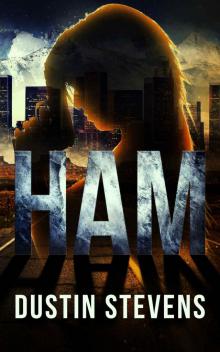 Ham
Ham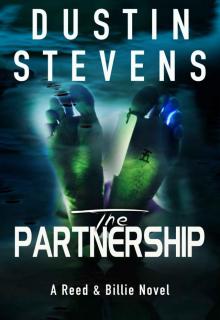 The Partnership
The Partnership Justice
Justice The Subway
The Subway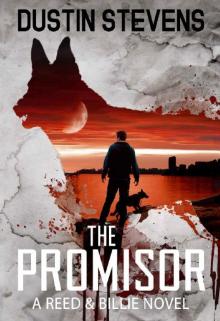 The Promisor: A Suspense Thriller
The Promisor: A Suspense Thriller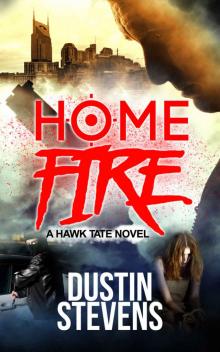 Home Fire: A Suspense Thriller (A Hawk Tate Novel Book 5)
Home Fire: A Suspense Thriller (A Hawk Tate Novel Book 5) The Bear
The Bear Battle Cry
Battle Cry Warning Shot
Warning Shot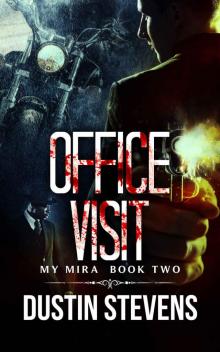 Office Visit
Office Visit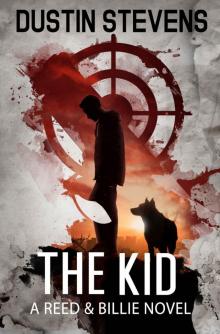 The Kid: A Suspense Thriller (A Reed & Billie Novel Book 3)
The Kid: A Suspense Thriller (A Reed & Billie Novel Book 3)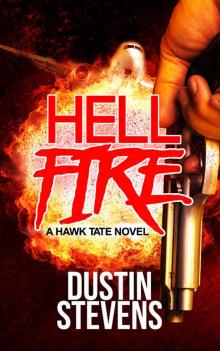 Hellfire: A Suspense Thriller (A Hawk Tate Novel Book 4)
Hellfire: A Suspense Thriller (A Hawk Tate Novel Book 4) Motive ; One Last Day ; Going Viral
Motive ; One Last Day ; Going Viral The Subway ; The Debt ; Catastrophic
The Subway ; The Debt ; Catastrophic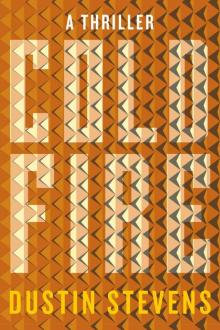 Cold Fire
Cold Fire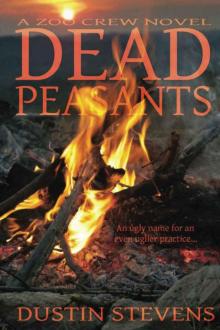 Dead Peasants (Zoo Crew series Book 2)
Dead Peasants (Zoo Crew series Book 2) Thriller Box Set One: The Subway-The Debt-Catastrophic
Thriller Box Set One: The Subway-The Debt-Catastrophic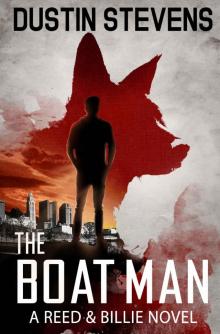 The Boat Man: A Suspense Thriller (A Reed & Billie Novel Book 1)
The Boat Man: A Suspense Thriller (A Reed & Billie Novel Book 1) The Zoo Crew (Zoo Crew series Book 1)
The Zoo Crew (Zoo Crew series Book 1)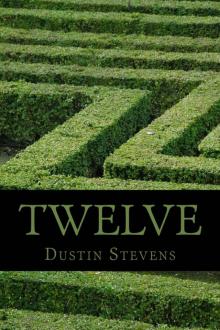 Twelve
Twelve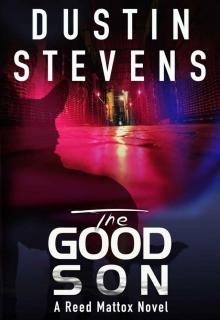 The Good Son: A Suspense Thriller (A Reed & Billie Novel Book 2)
The Good Son: A Suspense Thriller (A Reed & Billie Novel Book 2) The Boat Man: A Thriller (A Reed & Billie Novel Book 1)
The Boat Man: A Thriller (A Reed & Billie Novel Book 1)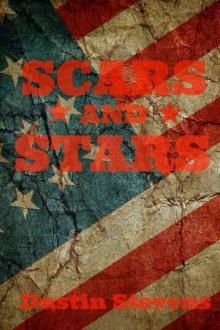 Scars and Stars
Scars and Stars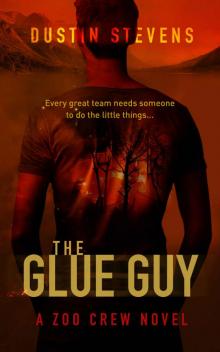 The Glue Guy: The Zoo Crew Series Book 4
The Glue Guy: The Zoo Crew Series Book 4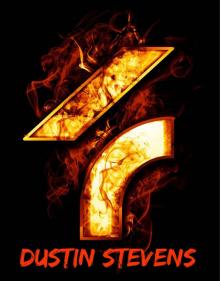 Four
Four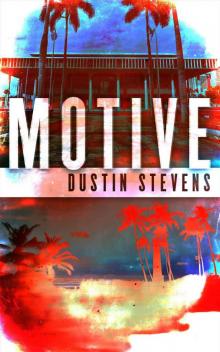 Motive
Motive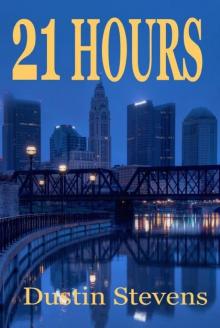 21 Hours
21 Hours Krokodil
Krokodil Ohana
Ohana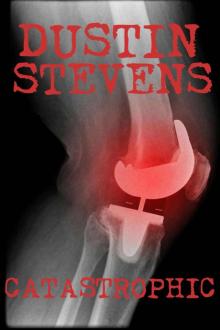 Catastrophic
Catastrophic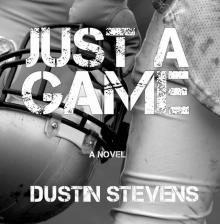 Just A Game
Just A Game Quarterback
Quarterback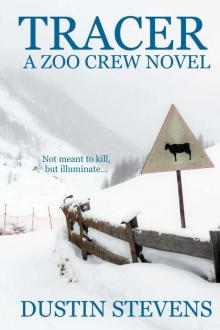 Tracer
Tracer Fire and Ice: A Thriller (A Hawk Tate Novel Book 3)
Fire and Ice: A Thriller (A Hawk Tate Novel Book 3)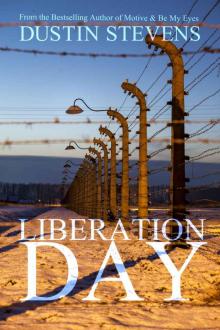 Liberation Day
Liberation Day